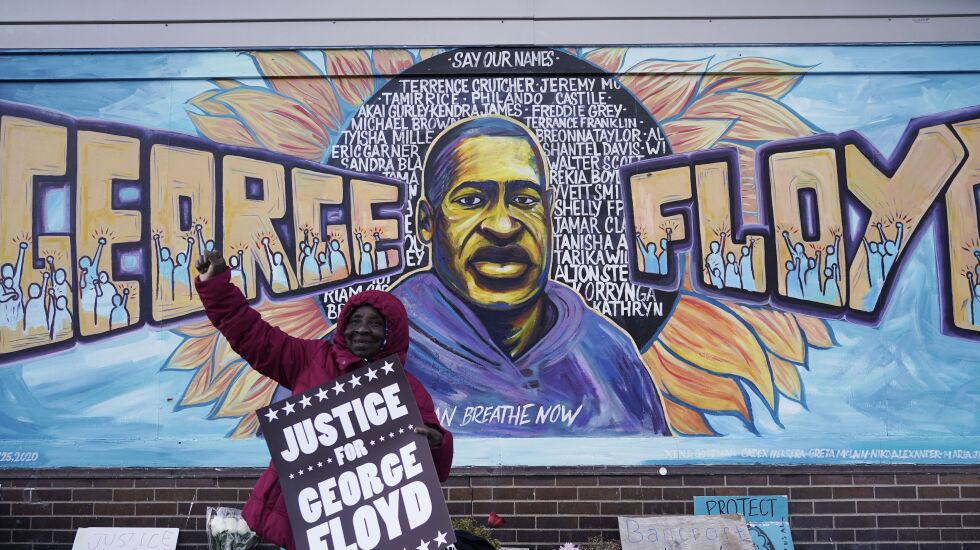
America’s “racial reckoning” reminds me of chocolate cake.
At the end of a long day or a long week, I will sink myself into a hearty piece of chocolate cake.
Mmmm. Delicious.
I know I shouldn’t, but I deserve it, I tell myself.
And it makes me feel good.
Not only does the tasty treat satisfy my palate, it also satisfies my spirit by distracting me from the many frustrations of life — failures at work, with finances, in pursuing personal goals and in relationships with friends and family. And it comforts me from the missteps I’ve made that contributed to that pain.
When it comes to our so-called racial reckoning. It seems America, particularly white America, is trying to have its cake and eat it, too.
For sure, it seems in the more than two years since the murder of George Floyd, there’s been more public awareness of racial inequity in America and greater acknowledgement of the legacy of racial discrimination in this country than at any point in recent memory.
But it’s hardly been a reckoning.
We’ve been here many times before: the Red Summer in 1919, the Civil Rights movement of the 1950s-60s, the Los Angeles riots of 1992, just to name a few flash points when race dominated the public discourse for a time.
But we’ve never truly reckoned with our past and current failures on matters of racial discrimination and inequity. And it’s laughable to suggest we’ve done so since 2020.
In fact, the backlash to the Black Lives Matter movement, the 1619 Project, the teaching of America’s racial history in schools and other incisive attempts to bring America face-to-face with its many forms of racism — individual, institutional, systemic and structural — continues to grow louder and gain momentum.
While in office, Donald Trump went so far as to issue an executive order to ban federal government agencies and contractors from engaging in diversity training — declaring it was necessary to “promote unity” and to “combat offensive and anti-American race and sex stereotyping and scapegoating.”
And since Trump left office, coordinated efforts to ban books tackling issues of race — as well as gender and sexuality — continue to sweep across the country. Some who support removing the targeted books from schools and libraries say the literature can make white students feel uncomfortable and guilty.
On Thursday, during the first debate of the Illinois governor’s race, Republican nominee and state Sen. Darren Bailey took a swipe at critical race theory.
None of that sounds like a reckoning. It sounds like denial.
It sounds like a movement of people taking a collective bite of chocolate cake. Only this time the comfort food is being used to soothe their American pride, to shield their children from the horrors of America’s past and to spare themselves the embarrassment of America’s racism of today.
It makes them feel better.
I don’t know exactly what a true racial reckoning in America would look like, but I’m sure it wouldn’t feel good. It would be long, ugly and painful. People would feel anger, resentment, guilt and shame.
But, ultimately, such a process is required for Americans to reach a common understanding of the impact of our racist past and present and to determine what’s required to spare future generations from those realities.
The challenge is daunting, but we may have stumbled upon a potential blueprint to get there.
The many ongoing conversations about diversity, equity and inclusion happening in workplaces, universities, social clubs and other organizations across the country could break down this mammoth issue into digestible bites. Smaller circles, where people are familiar with one another, might be the most conducive environment to engage on a subject as volatile as race.
It also presents the greatest opportunity for people to fully grasp the pain and impact of racial discrimination. Hearing about those experiences from people you know, people you care about, could help penetrate the walls of defensiveness that block healthy dialogue.
Entering that space takes an enormous amount of humility and courage. As a nation, we’re nowhere near ready to tread those waters. But perhaps some forward-thinking nonprofits and companies might be willing to take the leap.
Some of the most engaging conversations I’ve had about race have come in workplace diversity training sessions I’ve attended. We were just scratching the surface, but they left me feeling optimistic about the possibilities if we stayed the course.
It’s a scary road, but it’s a road we must take.
A nation that continues to wear blinders is destined to repeat its mistakes. When it comes to racism, that’s a fact that should be plain for all of us, because we’ve lived it far too many times.
Alden Loury is senior editor for race, class and communities at WBEZ and writes a monthly column for the Sun-Times.
The Sun-Times welcomes letters to the editor and op-eds. See our guidelines.







